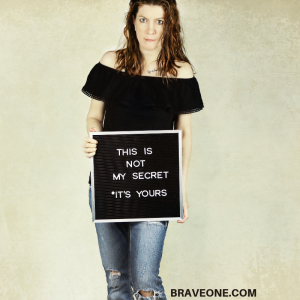
Questions like these, much like a hamster on a wheel, make us feel like we’re on a road going nowhere. We have tons of questions, some with no answers. Whether the answers are known or unknown, I’d like to help you with your path toward healing.
Painfully, I’ve watched many amazing people become shattered by betrayal and others paralyzed by the pain. So how is it then, when we’re literally picking the shrapnel out of our own body, can we get started on our journey to healing? I get it. At times all I had was two speeds: sitting and breathing.
Yet, I want you to know it IS possible to heal. You can find your path out of pain and into wholeness, regardless of what happens in your relationship. So, what does it take? Over the years, I’ve seen some of us as partners become stuck in the struggle, while some eventually thrive. When I’ve looked closely at what might be the primary differences between these two partners experiences, several key factors came to mind. But before I share them, I feel like these three ideas should come with a warning label.
WARNING: The things you’re about to read are not for the faint of heart. They may cause anxiety, fear and a sense of overwhelm. You’ll probably cry…maybe a lot. If you think about stepping toward these three pillars it will take tremendous courage, support and hard work. Should you choose to pursue this path, you may experience growth, healing and dare we say joy. You’ll be surprised by your own strength and sense of empowerment. You’ll begin to change. No matter who you were before the betrayal you may actually find you grow into someone better and more confident; a richer, wiser, version of yourself. At some point, you may actually begin to like your life again.
In the Chapter 4 of my book, Intimate Deception: Healing the Wounds of Sexual Betrayal, I share how it’s possible with help and support to dig out. (page 66)
“What’s happened in my life and in the lives of other betrayed women who have grown through their pain is a by-product of something called posttraumatic growth. It’s mind-boggling how trauma and transformation can coexist. Striking evidence now shows that when betrayed women are given the proper care and resources, they learn how to adapt and recover from adversity.1 It’s how we find our voice, inner strength, freedom, and peace of mind as we deal with the ups and downs without becoming invulnerable, indifferent, or insensitive. Resiliency comes after we’ve been unraveled and put back together again. Something can happen in us that goes well beyond surviving, it’s how we find our thrive. We can become a deeper, richer, and wiser version of ourselves. Posttraumatic growth is not something any of us go looking for, yet strangely we change through this crucible of uninvited pain. While I don’t ever want to walk this road again, what I have walked through has changed me—for the better. No matter what has happened to you, if you’re willing to grab a shovel and roll up your sleeves you can find yourself and begin to live again.”
Pillar One: Safe People
We all have friends or family, people we trust and rely on. How deep can you go with them? And then, how much of the betrayal should you share? On this journey we need a few reliable, good, souls that some refer to as “safe people”. We need support. We need people that will walk this journey out with us and not judge, condemn, blame, or fix. People that will be our champion and our sounding board. I don’t know about you, but I realized that my true north had gotten skewed throughout my marriage to Connor. I couldn’t trust my own judgment. I needed safe people in my life that could help me sift through my choices and find the ones that were right for me. I don’t know what I would have done without those safe and loving people in my life.
But how do you know who’s safe? Great question. Dr. Henry Cloud and Dr. John Townsend wrote a book called “Safe People.” It’s a great book that can help us with our people picker. Spoiler alert! It may not be the people you think it is. Who doesn’t want their immediate family to be safe? Sometimes that’s not the case. Or what about our best friend? Are they safe? That may not be the case either. Here’s a list of some basic points taken from the “L.I.F.E. Recovery Guide for Spouses” by Melissa Haas.
Safe people:
- Accept and love me unconditionally.
- Are comfortable with my feelings. They don’t try to lighten the mood or distract me or do something to stop my tears. They offer a shoulder, and they cry with me.
- Don’t gossip about me or my spouse.
- Don’t judge me or my spouse.
- Don’t try to fix the problem or offer solutions. They simply listen, encourage me, and pray.
- Don’t need my love or approval to be okay. They handle my angry outbursts and stormy emotions with appropriate and loving boundaries
- Are aware of their own brokenness. Humility and integrity are the hallmarks of their character.
- Are more concerned about relating to me and loving me than about giving me advice.
I sat down with this list a long time ago and mentally ran each person through it. I learned that some people I hoped were safe, weren’t. Others that I hadn’t given much thought to, actually were safe. We need some safe people to walk with us as we’re wrestling through what to do.
Pillar Two: Betrayal Trauma Support Group
Don’t you just love coming home after a long day, get‘tin in your sweats, grabbing your favorite meal and relaxing with a tv show or a book? Me too! That leads me to the second thing we need which is the emotional equivalent of that. Becoming part of a betrayal trauma support group is vital to feeling fully understood, known and validated. When we’re understood, it provides the comfort we’re looking for. Many people have said that when they walk in the door of their support group it’s like they can take a big breath. They can share if they feel like it and just relax. Sitting among others that get it, who are walking a similar path as yours, makes such a difference. We can be completely real and no one is going to look at us sideways. We need that. We also need a place where we share our story and receive empathy, compassion, and care in response. We need relationships. When we receive a positive response from those we’ve walked through deep pain with, we begin to heal. Literally, new neuropathways in our brain replace feelings of aloneness and devastation with safety and hope. It’s amazing! It may take some hunting but whether your support group is face to face or over the phone – it’s vital.
Pillar Three: Betrayal Trauma Trained Counselor
I want you to find a counselor for YOU. I want to see you find someone that’s in your corner and helps you talk through specific situations and struggles. They can help you find the answers that best fit what you’re going through. You need a safe place with a counselor who “gets it”. Someone with the right training and background will understand betrayal trauma and your circumstances fairly quickly. While support groups provide one pillar of strength – a good counselor can give you the one-on-one time to walk the day-to-day complexity of betrayal out. You wouldn’t walk into the emergency room and expect to be healed simply because you’re sitting near doctors, nurses, and other people in pain. You’d need a doctor to come, read your chart and understand your specific wounds and symptoms. Not only that but you wouldn’t have a brain surgeon do surgery on your heart. You’d want someone who’s specializes in heart surgery, right? Trust me, there are many great counselors out there. But not all of them have been trained in sexual addiction and betrayal trauma. I’ve found that people who seek out counselors with special training in these areas, find a sturdy foundation to work from. Check out apsats.org and iitap.com to search for a trained counselor in your area.
As I’m sure you’ve gathered, it takes a lot of time and energy to heal. It may also take some financial investment in yourself. You’re worth every drop of sweat, every tear, and every dollar. You’re an amazing person with goals, dreams, and talents. You’re worthy of truth, honesty, and love. Healing and wholeness are waiting for you. Fight for your healing with all you’ve got. Be relentless. Courageously pursue growth. You’re worth it.
1. Deb Laaser et al., “Posttraumatic Growth in Relationally Betrayed Women,” Journal of Marital and Family Therapy 43, no. 3 (2017): 435–47.




4 thoughts on “3 Pillars to Healthy Healing”
Hi Sheri,
I can totally relate to everything in all of your articles. I have attended a women’s group for verbal abuse for years. I finally divorced my husband of 23 years 7 years ago. I can honestly say I still isolate and feel depressed and lonely at times when I am not working. Many psychologists just try to make me move on……I honestly don’t have any clear plans or vision for the future. At 58 years old, I feel like time is moving and I am not enjoying my life as I should be. Thank you for taking the time to read this.
Abuse hurts! It can also leave trauma-induced shame beliefs about ourselves like “I can’t trust anyone,” “I’m not enough” or “I don’t deserve love” velcroed to us. It’s interesting how layers of pain can get stuck in the cracks and crevices of our lives, which could cause depression and isolation. I think you’d find my blog “Digging Out” very helpful. Specifically the section where I talk about EMDR which stands for Eye Movement Desensitization and Reprocessing. Check it out https://drsherikeffer.wpengine.com/digging-out/
Hello Sheri,
I was wondering if there is support or books that cover betrayal by your husband who is not engaging in porn but the memory of porn and practices self-love nearly daily or weekly at the least while denying you sex and intimacy then lying about the masturbation. This is a form of betrayal that I never See addressed anywhere. It’s always about him cheating with a woman not with himself. It’s always about engaging in pornography not the memory of it.After 17 years of it and total denial and total enforced celibacy on my part, I left. My body was completely broken down from stress and then a nervous breakdown followed that so I have lived on my own for 10 years. I know I’m still broken but I’ve never found anyone who understands or any safe person who doesn’t judge or say stupid things. I tried every thing imaginable to get him to stop the behavior. He would never admit to it until I told him I had spied on him through a window and watched him multiple times. He couldn’t deny it anymore. So he just said he was not doing it anymore now. He swears. He’ll swear to God. It’s all a lie. There has been no woman in his life and no intimacy with me for this 10 years that I’ve been gone so obviously he’s lying.I let go of hope a long time ago that he would change or that I could find a way to be enough. I was told on our honeymoon that he had made a mistake and that having sex with anyone felt wrong. he likes having sex with his self and there was nothing I could do to change it and believe me I tried. When you reduce yourself as a very strong person to some groveling idiot who begs her husband for sex or intimacy because she’s so lonely and needs what should be rightfully hers and you’re looked at like you are a bug on the wall and walked away from. There is no worst form of rejection to me. Please let me know if there are any resources for a person like me thank you for listening
Hi RK,
Wow….what an incredibly confusing and horribly painful issue starting from your honeymoon and going forward. Sex in marriage is never meant to be a self-serving unilateral act. I suggest you check out Dr. Weiss’s book and material around Intimacy Anorexia. It may shed some light on the issue. Who knows what the story is – a past that includes sexual abuse, emotional neglect, etc. For some their genitals become the only pacifier they had – yet as an adult their genitals can become their tomb. You can’t fix his issues. Once you have more clarity girl – it may be time for you to take care of you by heading back into therapy for a bit. Get your sanity back on – let go of what you can’t control – someone chronically having sex with themselves – and grow forward.
Brave on!
Dr. Sheri